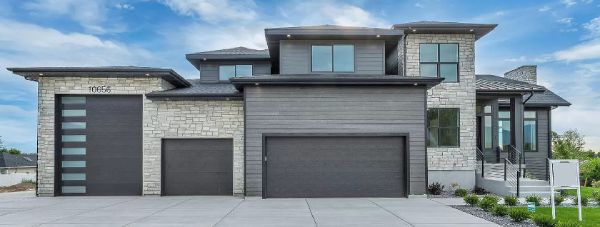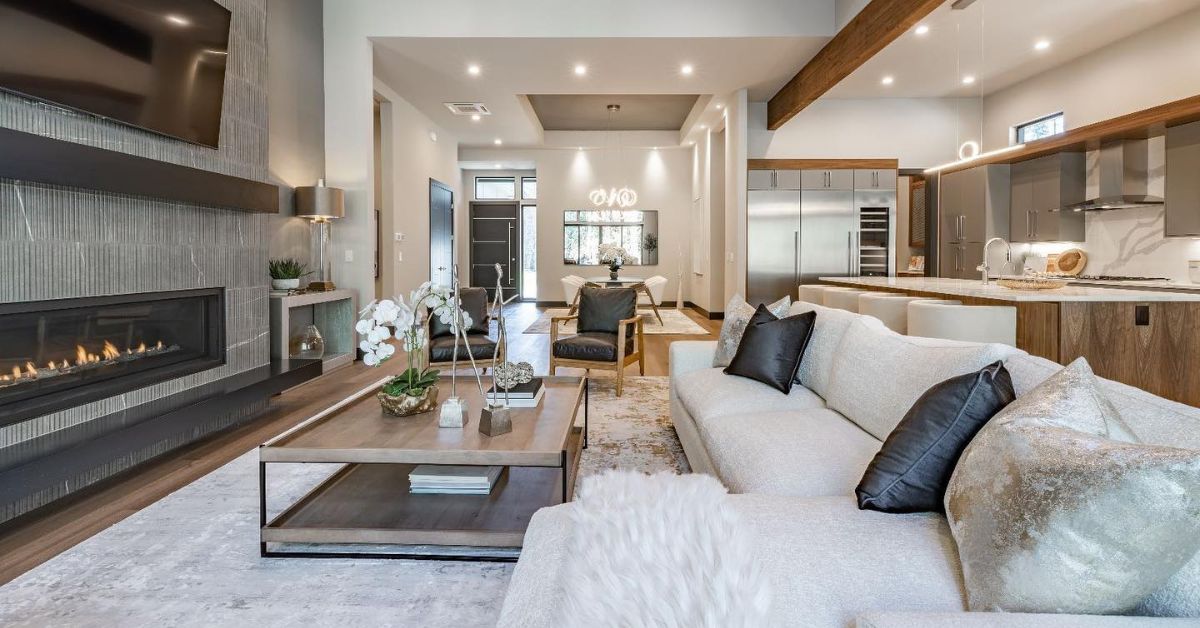Remodeling your kitchen can breathe new life into your home and enhance its functionality. Whether you’re looking for a minor facelift or a complete overhaul, understanding the costs involved is crucial.
In this blog post, we’ll explore the different factors that can affect the price of a kitchen remodel and provide tips for saving money along the way.
What Does an Average Kitchen Remodel Cost?
The cost of a kitchen remodel can vary significantly depending on various factors, such as the size of the kitchen, the quality of materials used, the scope of the renovation, and the project’s location. On average, homeowners spend between $20,000 and $80,000 on a kitchen remodel.
Low, Medium, & High Remodeling Budgets
Low Budget Remodeling Options
If you’re on a tight budget, several remodeling options are still available. Consider repainting your cabinets, replacing cabinet hardware, and updating your lighting fixtures. These small changes can make a big difference in the appearance of your kitchen without breaking the bank.
Medium Budget Remodeling Options
With a medium budget, you can consider more significant changes, such as refinishing your cabinets, installing a new backsplash, upgrading to energy-efficient appliances, and replacing your countertops. These upgrades can give your kitchen a fresh and modern look.
High Budget Remodeling Options
If budget is not a constraint, you can explore more luxurious options. Ideas for a high-budget remodel may include custom cabinetry, high-end appliances, premium countertop materials like granite or quartz, and professional-grade fixtures and fittings.
Factors Affecting the Cost of Kitchen Remodeling
Size of the kitchen
The size of your kitchen plays a significant role in determining the overall cost of the remodel. A larger kitchen will require more materials and more labor and could result in higher expenses.
Quality of materials
The quality of the materials you choose for your kitchen remodel will impact the cost. High-quality materials are generally more expensive but often offer better durability and aesthetics.
Scope of the renovation
The extent of your kitchen renovation will also affect the cost. A complete overhaul, including structural changes, will be more expensive than a simple upgrade of certain elements.
Contractor fees
Contractors’ fees can vary depending on their experience, reputation, and project complexity. Research and compare multiple contractors to ensure you find one within your budget.
Location of the project
The location of your project can impact the cost of remodeling. Labor, materials, and permit costs can vary depending on whether you live in a metropolitan area or a more rural location.
Kitchen Installation Costs Breakdown
Labor costs
Labor costs typically comprise a significant portion of the kitchen remodeling budget. This includes the fees charged by contractors, electricians, plumbers, and other professionals involved in the project.
Cabinets
Cabinets are an essential component of any kitchen remodel. The cost of cabinets can vary based on the material, size, and design. Custom cabinets are generally more expensive than stock or semi-custom options.
Appliances
Upgrading your kitchen appliances can add to the overall cost. The price of appliances will depend on the brand, features, and energy efficiency ratings.
Install
Additional costs will be incurred for the installation of various components, such as cabinets, countertops, and backsplashes. Professional installation ensures proper fit and functionality.
Countertop
The choice of countertop material, such as granite, marble, quartz, or laminate, will impact the cost. Higher-end materials tend to be more expensive.
Lighting & Electrical
Lighting fixtures and electrical work should be factored into your budget. This includes rewiring, installing new lighting fixtures, and adding outlets as needed.
Plumbing
Plumbing work may be necessary if you relocate or add sinks, faucets, or appliances requiring water connections. The cost will depend on the extent of the plumbing changes needed.
Flooring
Replacing or upgrading your kitchen flooring can enhance the space’s overall look and feel. The cost will depend on the type of flooring material chosen.
Backsplash
A stylish backsplash can add visual interest to your kitchen. The cost will depend on the type of material, size, and design complexity.
Miscellaneous costs
Additional miscellaneous costs may be involved in a kitchen remodel, such as permits, disposal fees, and any unforeseen expenses that arise during the renovation process. It’s essential to include a contingency fund to account for these costs.
The Most Expensive Part of a Kitchen Remodel
The most expensive aspect of a kitchen remodel is typically the cabinetry. Custom-built cabinets can be quite costly, especially if you opt for high-end materials and intricate designs. However, you can mitigate this expense by exploring alternative options, such as semi-custom or stock cabinets or refinishing and repainting existing cabinets to give them a fresh look.
Hidden Costs and Unexpected Expenses
Expected hidden costs in kitchen remodeling
Knowing the potential hidden costs is essential when creating a budget for your kitchen remodel. Some expected hidden costs include permit fees, potential structural issues that may be uncovered during demolition, and unanticipated upgrades or changes that arise during the renovation process.
Unforeseen structural issues
During the remodeling process, structural issues can arise that need to be addressed before proceeding with the renovation. This can add significant costs to the project, especially if it requires the expertise of a structural engineer or additional construction work.
Upgrading plumbing and electrical systems
Additional costs can be incurred if your kitchen remodel involves relocating or upgrading plumbing and electrical systems. These updates may be necessary to meet building codes or to accommodate new appliances or fixtures.
Permit and inspection fees
Obtaining the necessary permits and scheduling inspections can involve additional costs. Research and factor these fees into your budget to avoid surprises.
Additional expenses for customization and personalization
Suppose you have specific customization or personalization requests for your kitchen remodel, such as unique hardware, custom backsplash designs, or high-end finishes. In that case, these can add to the project’s overall cost.
Tips for Saving Money on a Kitchen Remodel
Even with a limited budget, there are several ways you can save money on your kitchen remodel:
- Consider refacing or refinishing cabinets instead of replacing them entirely.
- Shop around for the best deals on materials and appliances.
- Opt for cost-effective countertop materials like laminate or butcher block.
- Do some labor yourself, such as painting or demolition, to save on labor costs.
- Explore alternative lighting options, such as LED fixtures, which are energy-efficient and cost-effective.
- Repurpose or upcycle existing furniture or accessories to add a personal touch to your kitchen.





